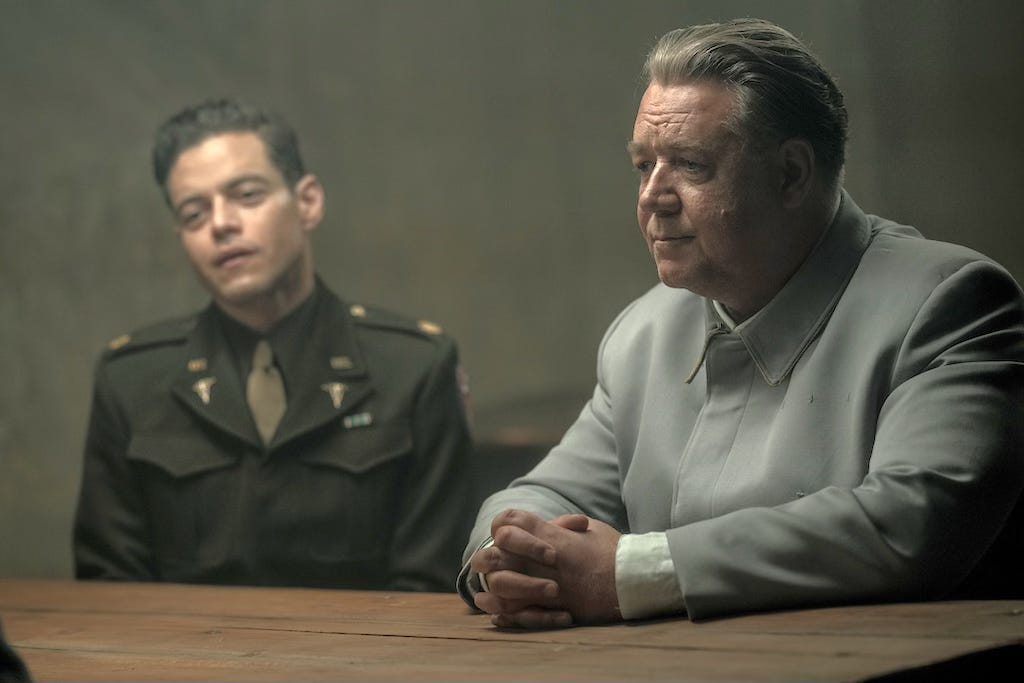An In-Depth Conversation with James Vanderbilt: Deconstructing the Complexities of “Nuremberg”
After Word War II ended in 1945, Europe was in tatters, still shell-shocked by the atrocities performed by the Nazis. The easiest way to deal with these war criminals might have been to confine them to the annals of history so the continent could heal and rebuild. However, the allies insisted that war trials would take place, law history be written, and legal justice served in Nuremberg, Germany.
Based on the Jack El-Hai’s novel The Nazi and the Psychiatrist, the film version of Nuremberg tells the gripping story of army psychiatrist Lt. Col. Douglas Kelley (Rami Malek) as he evaluates the psychological fitness of 22 detained Nazi officials, including former Reichsmarschall Hermann Göring (Russell Crowe). Kelley later published his works as 22 Cells At Nuremberg. Moreover, Supreme Court Associate Justice Robert H. Jackson (Michael Shannon) takes on the mammoth task of prosecuting the men responsible for the crimes of the Third Reich, and develop the foundational legal and ethical framework for this unprecedented international tribunal.
Bringing this story to the screen took well over a decade and involved poring over extensive transcripts, footage, and other accounts. Writer/ director James Vanderbilt (Zodiac, Murder Mystery) shares his thoughts on the process with Creative Screenwriting Magazine.

